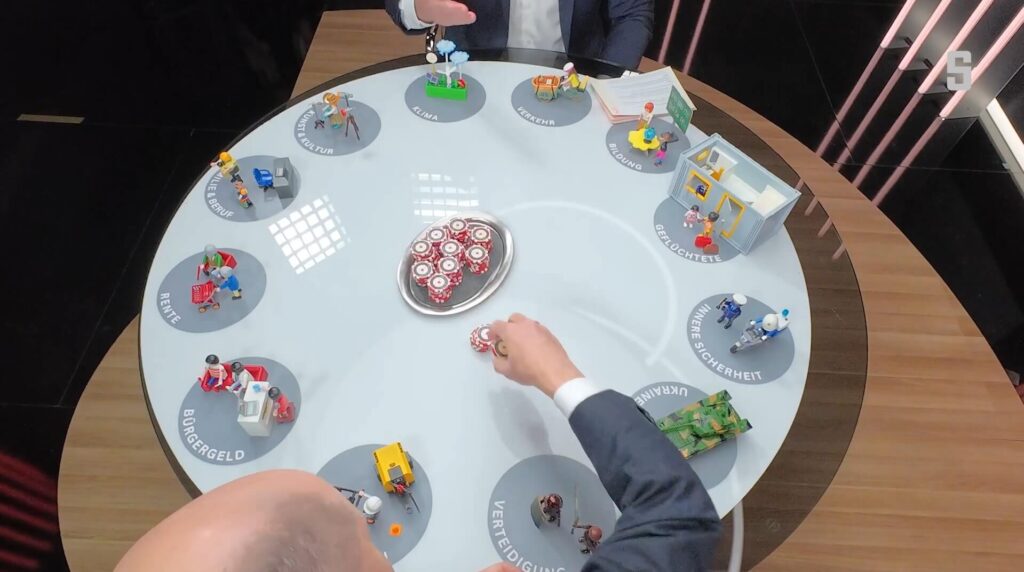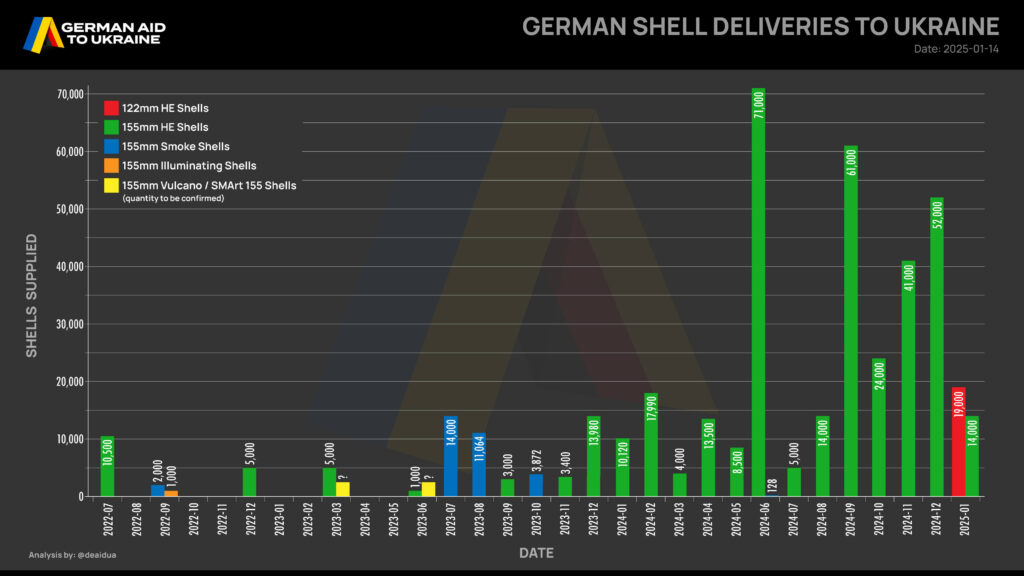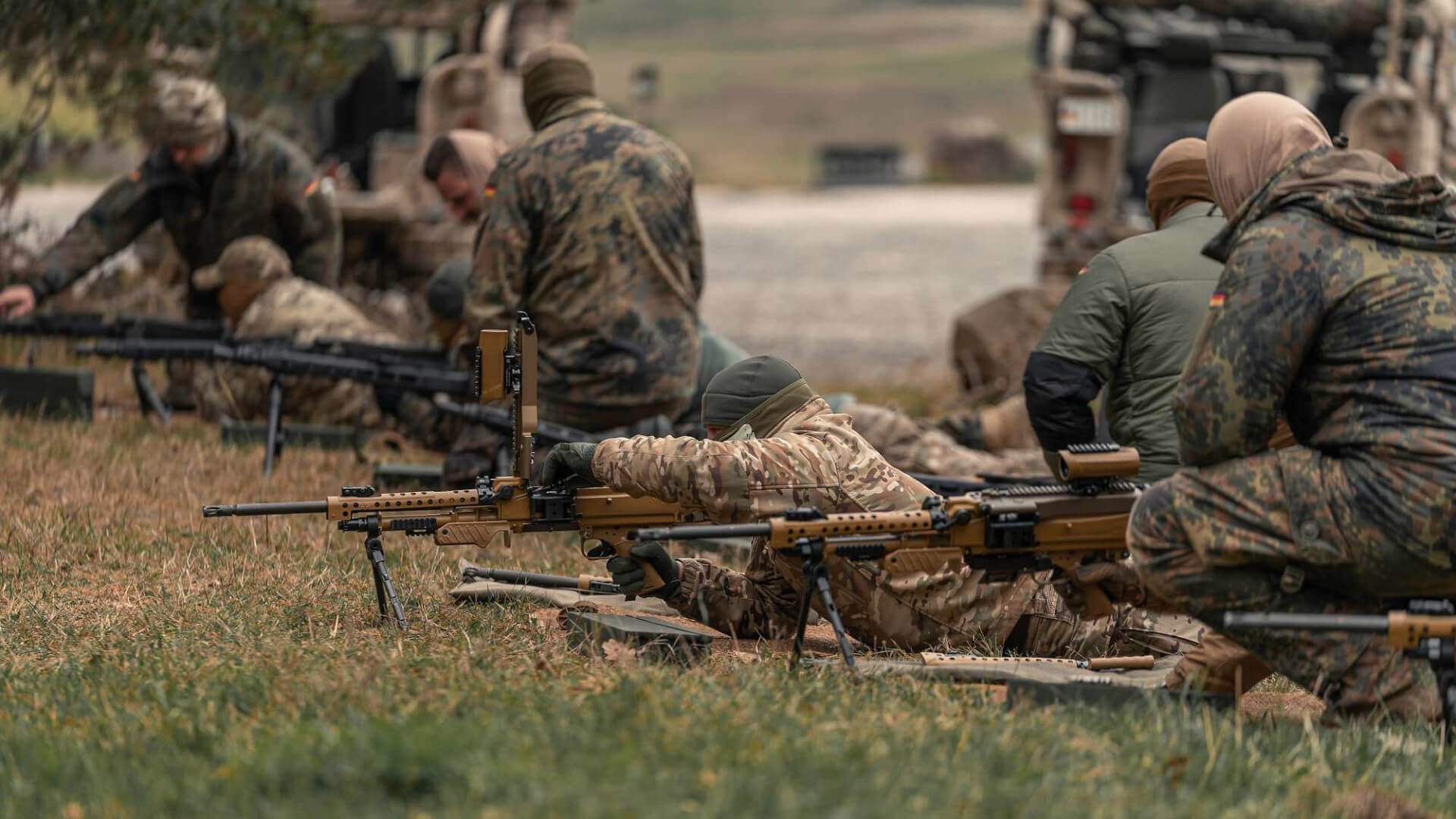While the world was watching the first UDCG meeting led by the UK and the disappointing statements made there by the new US Secretary of Defence yesterday, Germany had little to contribute without additional funding available for Ukraine.
While Minister of Defence Boris Pistorius therefore turned up at the meeting empty-handed, at least Chancellor Olaf Scholz managed to surprise me in a positive way on the same day thanks to an interview published late that evening by SPIEGEL.
Part of the interview was also the so-called “budget poker”. The task was simple. 100 poker chips were set up in the centre of the table. The current Chancellor was asked to distribute them as he liked to the 12 predetermined areas, according to the principle here I would like to spend more money, here I would rather spend less.

When asked about the last predetermined area, assistance for Ukraine, Scholz was asked to distribute the last poker chips purely on the basis of his favoured amount of military assistance, starting in 2025.
Scholz took two poker chips and said that if a total of €10 billion was allocated, that would be a lot and it would be a great deal of assistance. In his opinion, Germany would be able to do this.
However, he also pointed out that this would require separate funding, thereby referring to the debates in the past few weeks regarding the plan to provide Ukraine with an additional €3 billion in military assistance.
The negotiations very likely failed. The Chancellor and his party were unable to agree on a funding mechanism with the other democratic thinking parties.
Scholz insists on financing the assistance through taking on additional debt, while the CDU/CSU as well as the Greens and the FDP favour financing the assistance through the regular federal budget. It is precisely this taking on debt to finance the assistance that he is probably referring to in the interview when he talks about “separate funding”.
€10 billion — a record amount
€10 billion in military assistance would be a record amount for Germany and would be around €6 billion more than what is currently available. Last year, military equipment worth more than €7.5 billion was delivered to Ukraine.
This would not only match the military aid provided in 2024, as Minister of Foreign Affairs Annalena Baerbock and many others have repeatedly called for, but would also exceed this amount by more than €2 billion!
Although it is still unclear what would be financed with such a large budget as it is purely speculative, the possibilities are almost endless due to the enormous demand and the precarious military situation in Ukraine.
For example, a renewed commitment could be made this year to the Czech ammunition initiative, which had an enormous impact on the battlefield as well as on German ammunition deliveries last year.

In 2024, the German government financed a total of 180,000 155mm shells worth €576 million. This made Germany by far the largest donor to the initiative. In the end, more than every second artillery shell financed by Germany reached Ukraine via this initiative, not via domestic production as many would think.
For 2025, however, hardly any commitments have been made and Germany has yet to make any at all. Without the deliveries realised through the initiative, Ukraine once again faces the risk of running into an ammunition shortage. This makes it all the more important that Germany now provides at least another half a billion euros, but preferably twice as much.
As I said, this is just one example. Other ways to invest the funds, which in my opinion are absolutely necessary, are the pledge of comprehensive spare parts packages, investments in the Ukrainian defence industry, long-term contracts for modern IFVs and MBTs as well as the procurement of additional air defence systems.
What are the chances?
Even though Scholz believes he has a 60% chance of being re-elected, all available polls suggest that this is not at all the case. In the latest ZDF Politbarometer (as of 7th of February), his party, the SPD, is in third place together with the Greens with 15% of the votes, while the CDU with chancellor candidate Friedrich Merz has twice as many votes.
It would therefore need a spectacular recovery for Scholz to be able to say on the 23rd of February that he will remain the German chancellor, let alone realise his wish of up to €10 billion in military assistance for Ukraine.
It is not yet clear what Friedrich Merz would decide in the event of an election victory. The only thing that seems confirmed so far is that he would turn away from the US and towards the UK, France and Poland, as well as realizing a delivery of Taurus KEPD-350 cruise missiles to Ukraine.
If you liked this post, consider following me on X, Bluesky, or Telegram. If you like, you can also leave me a tip on Ko-fi.


